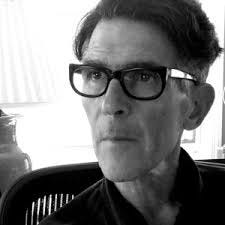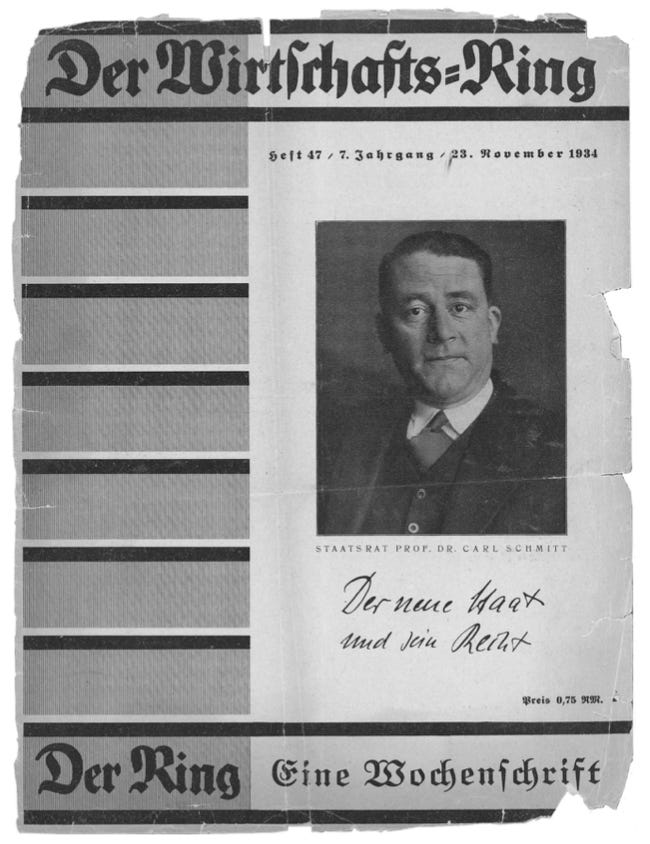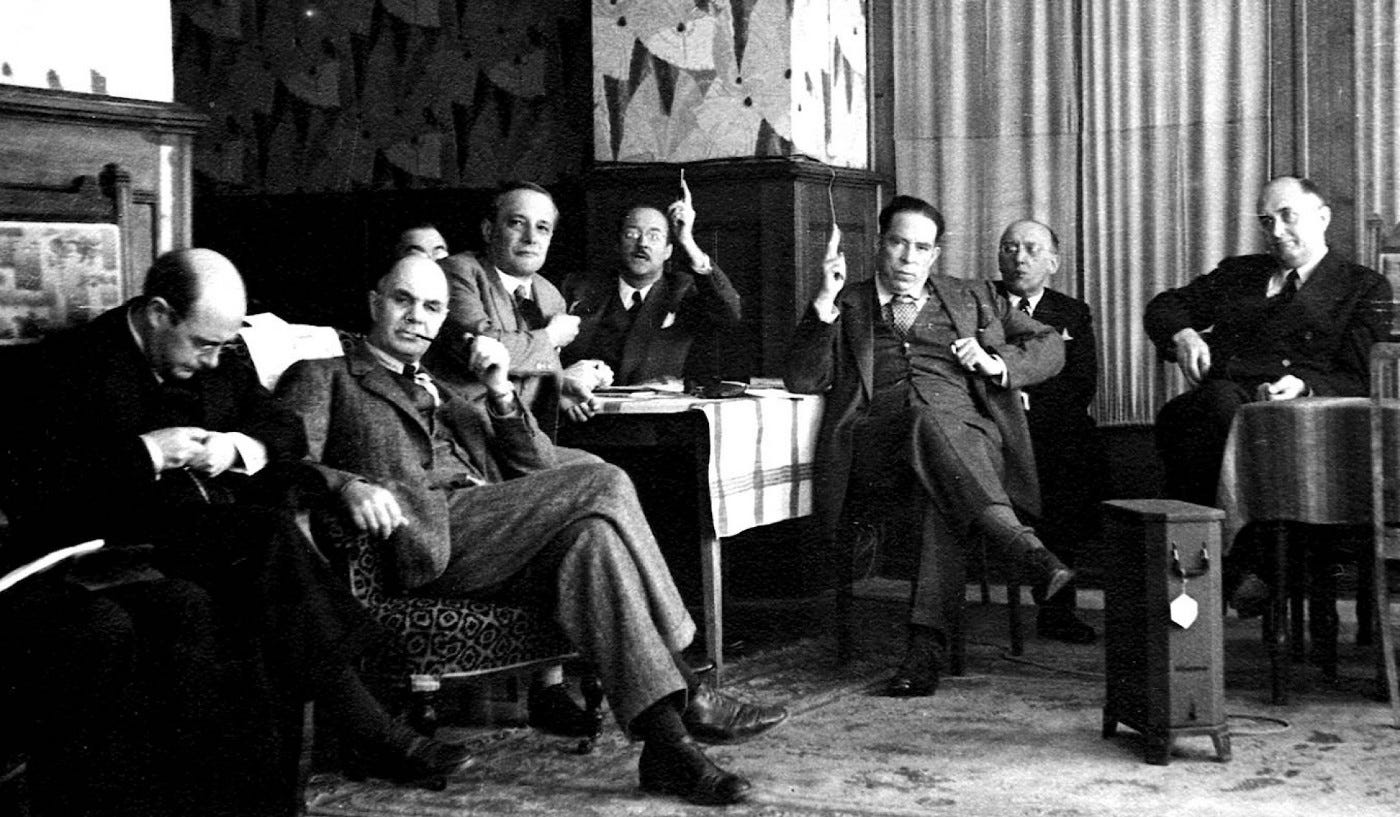AGAINST SENTENCES
I was very taken with this piece by G.D. Dess agitating against ‘craftism,’ which Dess defines as “a focus on style over substance, a fetishization of sentences themselves.”
This may sound like one of these ridiculous intra-literary spats - ‘are you for sentences or against them’ and Dess himself is duly wary of trying to take on craft in toto - but I actually do think it’s very important and speaks closely to a way in which ‘high-end’ literary fiction, as it’s currently conceived of, has lost contact with its true mission.
Dess’ adversary is a prose tradition that starts really with Gustave Flaubert rolling around on the carpet of his Rouen home in search of le mot juste, extends directly through the MFA programs, through a heightened sense of craft espoused by writers and literary eminences like Frank Conroy, Gordon Lish, Tobias Wolff (as Wolff wrote memorably of sentences - “gnawing the same bone until it cracked”), and culminates in a hyper-mannered contemporary prose style that Dess associates with Anthony Doerr, Emily Hall, Sheila Heti, Rachel Cusk, etc, and that is advocated for most vigorously by Dess’ sparring partner, the writer Garielle Lutz (formerly known as Gary Lutz).
It’s difficult to not be moved by Lutz’s essay ‘The Sentence Is a Lonely Place’ in which she discusses the unremitting drabness of her childhood (“A calendar was hung in the kitchen as if to say: expect more of the same”) and the salvation she experienced by coming into contact with exactly the sort of ornately-crafted fiction descried by Dess (all of it, Lutz drily notes, edited by Gordon Lish) - fiction that brought all the colors into her life and which was characterized by a reverence for language and a maximization of the possibilities of the sentence. “The sentence is the one true theater of endeavor,” Lutz writes gladiatorially, “the place where writing comes to a point and attains its ultimacy.” She continues: “I favored books that you could open to any page and find in every paragraph sentences that had been worked and reworked until their forms and contours and their organizations of sound had about them an air of having been foreordained—as if this combination of words could not be improved upon and had finished readying itself for infinity.”
I would never condemn somebody’s process of personal transformation. If that’s what worked for Lutz, that’s what worked for Lutz. But I must say that I get tired very quickly reading her prose - and exactly because of this quality, the sense that she herself is suffering past the point of endurance: it becomes all too easy to picture the writer wandering around her study, tossing pencils in the air, maybe chewing a bit of carpet à la Flaubert, and finally returning to the laptop when she has just the right onomatopoetic assortment to describe the buoyancy of words: “the words fizzed and popped and tinkled and bonged,” as Lutz writes grandiloquently of her love affair with language.
Lutz has an intriguing way of talking about the sentence - as “the loneliest place for a writer” - and views the ability to stay within a sentence, and to relentlessly perfect it, as an existential test of character. “The conditions in just about any sentence soon enough become claustrophobic, inhospitable, even hellish,” writes Lutz, but, by facing what is hellacious to us - by facing the sound of our own voice, in other words - the courageous sentence-driven writer is able, in Lutz’s conception, to tunnel in to unimagined recesses of themselves and achieve personal transformation.
Which sounds lovely - but Dess isn’t convinced and neither am I. (And I’m not sure Lutz is fully convinced either - in a fine-printed disclaimer at the end of the essay, she concedes, “Such a fixation on the individual sentence might threaten the enclosive forces of the larger structure in which the sentences reside.”) The suspicion, when we see some exquisitely crafted sentence, with the assonances and alliteration aligned just in the way that Lutz advocates, is that we’re not getting an overcoming of character but simple showing off - and, worse, manipulation of the reader. Dess rightly singles out the dizzyingly overpraised Anthony Doerr as a textbook case of what can go wrong with the sort of hyper-craftsmanship that Lutz prescribes.
Of a bombing, Doerr writes in All The Light We Cannot See: “Flames scamper up walls…Fires pool and strut; they flow up the sides of the ramparts like tides; they splash into alleys, over rooftops, through a carpark. Smoke chases dust; ash chases smoke.”
Lovely. A checkmark next to each sentence. In every sentence, an unusual, original, evocative description. But all of that is removed from the point of the exercise: this preciousness has absolutely nothing to do with the experience of a bombing. And Doerr’s crimes against good taste and lived experience extend, as Dess nimbly documents, well past that single description. “In his obsession with craft, Doerr has relieved himself from the writerly responsibility to say something true about his characters,” Dess writes. “Neither of his protagonists exhibit any interiority—they exist merely as beautifully painted marionettes whose strings Doerr pulls to move the plot along.”
Which is not so much to blame Doerr - who is only doing what he senses will be rewarded by the market and by the ‘literary community’ - as it to blame the neurotic Flaubert, the arch-villain Gordon Lish, and the publishers who astutely capitalize on the fetish of craft. The gladiatorial sensibility espoused by this crew ties in perfectly with a market-driven incentive to turn writing into a contest - whoever writes the best sentence wins; whoever strings the most best sentences together in a single work becomes ipso facto the best writer.
But unfortunately, pace Flaubert and Lutz, that sensibility has nothing whatsoever to do with what makes writing and art actually moving and meaningful to people. Writing is basically just a connection between two human beings, writer and reader - as simple as that. And, for the writer, writing is an opportunity to express one’s personality in its authenticity and in its splendor - the chance to be true to oneself. It’s not really so different from speaking or from thinking; but there are certain resources in the written word that, as most people who write discover, allow one to push past social conventions and come into closer contact with an an authentic self. And, so, if I’m reading, I’m genuinely curious about this person I’ve come into communication with - who are they; what has their experience been; what do they have to say; what is the shape of their imagination. (This last is maybe the most interesting quality - since a person’s imagination, the stories they create, the settings they devise, is both intimately true to themselves and seems to come from some realm beyond them.) It’s really not the laborious undertaking that everybody makes it out to be - it’s mostly about the simple task of loving oneself (which, of course, although simple, is far from easy).
The reigning emphasis on craft, on self-transformation through craft, pushes in the complete opposite direction. View the natural sentence as ‘hellacious,’ as Lutz does, and you find yourself in a pit of self-loathing, a hellscape. (I really somehow doubt that any amount of crafting, bone-chewing, carpet-chewing, can bring a writer psychologically out of that state.)
And in terms of the overarching history of literature I sense, in the emphasis on craft, a similar self-loathing and existential crisis. Again astutely, Dess traces the cult of craftism to John Hawkes and his unpromising declaration, in a 1965 interview, “I began to write fiction on the assumption that the true enemies of the novel were plot, character, setting and theme.” I find the date of Hawkes’ statement to be very revealing. That was right at the time when movies were starting to get really good, when literary fiction was losing its centuries-long hold over the art of storytelling. It was inevitable, in that circumstance, that a certain panic would set in - that for wildly ambitious writers like Hawkes the tendency would be to abandon their art form altogether and set up a kind of alternative novel that filmic storytelling would never be able to touch.
I’m sensitive to that concern - art forms are rivalrous to one another - but, in the case of film’s challenge to literature, the threat wasn’t as existential as it might have appeared. There was a great deal that film couldn’t do and that prose writing could - above all, it didn’t have access to the same degree of interiority, to the inner life of the characters or of the author. For me, the best fiction of the past half-century moved distinctly in this direction - it was less concerned with traditional forms of storytelling but it emphasized authentic experience, the singularity of a writer’s inner world. It was chill - there was a sense that style was a very personal phenomenon, as idiosyncratic as one’s handwriting, and that a writer’s obligation was to honor whatever came out of them without much thought to how crafted or perfect it might be. But, for whatever reason, the mandarins, the people who hand out prizes, came up with a different set of priorities, which was all about language, which put the craft of sentences to the forefront, and which created a curiously inert quality in much of high-end literature (All The Light We Cannot See being a good example). The feeling was of something like watching a bodybuilding or dog breeding contest - it wasn’t to take away from the dazzlingly hard work or degree of skill that the contestants had put into it, but where was the connection, where was the fun in it? Very simply, it was all about chasing an ideal of perfection. But perfection - I’ve always been convinced - is very much a false god. Not only cold, inhuman, cruel, unforgiving, but also, unfortunately, not very interesting.
DEFINITELY AGAINST CARL SCHMITT
Schmitt is one of these figures where I’ve learned to wrap a minus sign around everything they say - however thought-provoking. I’m still far from an expert on him, but I pay attention every time he crops up - which he does, surprisingly often, and with a staggeringly blithe disregard for his Nazi past (not just a Nazi - but a crucial architect of Nazi legal theory, which is to say the abolition of law altogether). The image that’s hard to resist is of Schmitt as like the Blofeld of political philosophy. Behind every noxious doctrine - behind John Yoo, behind Dugin, behind Ilyin, behind Hitler himself (!) there’s Schmitt sitting in his university office in the Weimar Republic he detested so much writing out his treatises.
As a primer, Richard Wolin’s essay on Schmitt in Liberties is a terrific place to start - and thoroughly dismantles latter-day attempts to rehabilitate him. Much of this is done inevitably in the realm of biography. Schmitt had been a somewhat successful pupil of the post-war denazification process and managed to promulgate some eagerly-accepted fictions - that he was a reluctant servant of the Nazi regime, was never particularly sold on the race theories, and had at times been in a state of open rebellion against the Nazis, to the point where he was denounced in an SS journal. But a more careful parsing of his biography revealed that none of the was true - Schmitt was an enthusiastic Nazi from well before the beginning to well past the bitter end - and his recently-published diaries made abundantly clear the extent of his anti-Semitism (1931: “overwhelmed by the shame and scandal of living in a Jew-city, insulted and shamed by Jews”; 1933: “Hopeful because of the Nazis, rage at the imposture of these assimilated Jews,” and so on).
But Wolin is even more incisive on the indefensibility of Schmitt’s political thought. What I had associated with Schmitt was the principle of ‘order’ for its own sake, as the be-all-and-end-all of statecraft, and the principle of the ‘emergency’ as a glorious suspension of normalcy equivalent to a a religious ‘miracle.’ What united these two apparently contradictory ideas was the ‘sovereign dictatorship,’ which was able to ‘suspend’ all normative, contractual laws and to institute a higher, absolute ‘law,’ which was, in practice, the will of the dictator and which condoned or was even reified by acts of extreme political violence.
Wolin, with his deep knowledge of Schmitt, tacks on these equally charming ideas to the Schmitt oeuvre:
-The national myth (Schmitt was thinking of Mussolini’s 1922 March on Rome) as an ‘irrational’ power of tremendous force that could annihilate ‘Anglo-Saxon liberalism.’
-The updating of absolute monarchy to the 20th century. From the perspective of conservative thinking, Wolin contends, Schmitt’s insight was to abandon as retrograde the monarchist views of somebody like Charles Maurras and simply to hand the torch of the right-wing off to dictators. “The epoch of royalism has reached its end,” Schmitt noted pragmatically - which was a very different thing from the epoch of absolutism.
-The summation of politics as a division into friends and enemies, us and them - with no attempt whatsoever at concord or harmonization, let alone humanizing the enemy. “The political enemy,” Schmitt wrote in 1927, “is the other, the alien, and it suffices that in his essence he is something existentially other and alien in an especially intensive sense.” As Wolin notes, “Those must be some of the most chilling words written in modernity.”
- The detestation of ‘human rights’ as a particularly pernicious branch of liberalism and of the ‘human rights-lings’ who abounded in the Weimar Republic as disrupting the fundamental unity of absolute power.
- And, for a kicker, the ‘natural right’ for ‘large space nations’ (Grossraum Volker) to subsume ‘small space nations’ (Kleinraum Volker) - although, to be fair, this was written in 1939 and Schmitt may have been getting a bit carried away and succumbing to some peer pressure.
Lay all these theories out and it seems impossible that Schmitt would still have defenders. And yet he does - and Wolin is again helpful in locating Schmitt’s defenders not just on the far right where one would expect to find them but on the radical left as well (as part of an attempt to extricate the left-wing revolutionary spirit from ever-unfulfilling Hegelian dialectics and to deposit them in a more congenial home, in Schmitt’s matter-of-fact endorsement of dictatorship). A surprising amount of Putin’s slide towards murderous insanity may be attributable to Schmitt. The Russian Fascist Aleksander Dugin recounts in Putin v. Putin how he had spent a great deal of time pushing Carl Schmitt on anyone who might read him and then was pleasantly surprised to encounter a ‘high-ranking Kremlin official’ who told him “we owe everything to Carl Schmitt.” At the time I read that I was thinking of Putin’s suspension of constitutional norms in the midst of ‘emergency’ situations (especially the pseudo-terrorist attacks of 1999-2003) and of the instating of ‘order’ as the sole (and tremendously popular) ethic of the Putin regime. But the turn towards the church and the memory of the tsar, the very deep-seated loathing of ‘human rights’ as ‘Western imperialism,’ and the ‘big brother’ relationship of Russia to Ukraine - which to me sounds a lot like Grossraum Volker and Kleinraum Volker - could all be stripped directly from the Schmitt playbook. Wolin traces the rise of Schmittian thought in the United States at the same time it was emerging in Russia - in the emphasis on extrajudicial processes and executive action in the Bush years. And then there’s the difficult question - Wolin doesn’t get into this; I don’t have a handle on it - of the extent to which Schmittian thought was imported into U.S. statecraft over the course of and in the aftermath of World War II, in the guise of ‘realism’ or ‘international relations,’ and became the cornerstone for the post-war security state apparatus.
What’s haunting about Schmitt - and what (to some very limited extent) excuses his defenders - is the sense that he’s not wrong in a great deal of what he says, that he is accurately describing grim realities of the vicious, zero-sum world of power politics. Imagining for a moment that he were a detached critic of the Weimar Era, his read of the underlying situation certainly was more astute than that of the ‘good people,’ the treaty-mongers, the ‘human rights-lings.’ He understood that good wishes alone would never end international conflict, as was the premise for so much of the statecraft of that era, and he recognized, most trenchantly, that order, regardless of the apparent composition of power (e.g. democratic, monarchist, whatever), could be fully satisfying to a population.
But, as Wolin notes, Schmitt represented a deviation even from the tough-minded, ‘realist,’ Hobbesian tradition. “After all, the point of Hobbes’ Leviathan,” writes Wolin, “was to transcend the war of all against all by means of a civil compact, not to celebrate and expand it.” But, in Schmitt, there was avowedly no transcendence, and power relations themselves, as in Hitler’s famous formulations, were elevated into moral law - into ‘right.’ The nihilism here is bracing and an existential challenge to all moral, all intellectual, thought. The most ready answer to it is ontological - if there is anything else in the world other than ‘the law of the jungle’ and there assuredly is, then it becomes possible for human beings to steer towards that; and they are not intrinsically bound to the sort of iron laws of nihilism and of absolutist dominance that Schmitt propounded and that Hitler so enthusiastically adopted. Even thinkers as unsentimental as Hobbes, Machiavelli, Clausewitz fundamentally understood this - that there were choices and alternatives, that there were various methods for sublimating or defanging the inherently destructive elements of power politics.
Not so for Schmitt. I don’t know enough about him to understand why he got to where he got to. Wolln points the finger at that old bugbear Prussian militarism, which hasn’t been heard from in a while - and I think it’s worth taking that seriously. The general post-World Wars consensus has been that the two sides were more or less interchangeable during World War I, that the tilt towards pure evil came from the trauma of Germany’s defeat. But Schmitt’s politics seem to have been fairly fully shaped by World War I - the only question was what form authoritarianism would take, whether monarchical or with a more cutting-edge populist streak, and when Mussolini and Hitler arrived on the scene he was fully ready for them. In a way, Schmitt’s philosophy was just Clausewitz’s ‘war is politics by other means’ extended to its natural conclusion - in Schmitt, ‘politics was war by other means,’ war (or what Schmitt referred to as the “real possibility of physical annihilation”) became the sole source of truth, the militaristic state became the sole political entity in touch with the basic truth of human relations, and politics itself became just a field in which a canny actor could apply militaristic principles in as wide a domain as their creativity and intelligence would allow.
With Schmitt, it’s not easy to say that he’s exactly wrong about anything; the move is to wrap a minus sign around the entirety of his thoughts and be ever-vigilant when his ideas surface (as they seem inevitably to do). And much of that move is about acknowledging the internal coherence of Schmitt’s position, its charisma, its ruthless simplicity, without ever accepting the notion central to Schmitt that he could somehow disprove other political theories. I have a certain weakness for seeing the mid-20th century Götterdämmerung as an intellectual battle for the highest possible stakes. And in that battle the heroes turned out to be a group of fairly fusty, mostly Anglophone moderates who simply never accepted the great totalizing systems (Hegelianism, Marxism, etc) that so subsumed the continent. There was something touching - if touching can ever be a word applied to Schmitt - in Schmitt’s finding his ‘foundational moment’ in the discovery of the truly obscure Spanish conservative Donoso Cortés, which mirrors Isaiah Berlin’s digging-up of the at-the-time equally obscure Giambattista Vico as an antidote to Hegelianism. The sense is that there are wars among intellectuals; they may seem trivial compared to the actual thing, but they matter and they have vast consequences - the career of Carl Schmitt is, maybe above all else, a testament to that. Chosen influences matter, philosophical assumptions matter, what matters most of all is commitment to one’s beliefs. And, in the case of Schmitt, what needs to be tackled with first is the inherent totalization in his worldview, the premise that ‘is’ creates ‘ought,’ that some sort of ‘law’ (by which he meant raw power relations) creates an absolute. Schmitt found anything in the domain of ‘rights,’ of ‘limits,’ of the diminishment of power, to be anathema. It’s exactly there, in the territory Schmitt deemed so contemptible, that a viable politics is to be found.
SORT OF KIND OF AGAINST NEOLIBERALISM
I was trying to work this New York Times op-ed on neoliberalism into my Commentator piece on the midterms but I couldn’t find room for it so I’ll write about it here instead. Neoliberalism is usually one one of these conversational non-starters - nobody knows what anybody else means by it; everybody knows that they’re opposed to but, once you agree that you’re opposed to it, it’s completely unclear what to do about it from there. I find it completely appropriate by the way that the first neoliberal conference in 1938 broke apart in confusion over what the movement actually stood over not too long after everybody had enthusiastically agreed on the name.
The other thing everybody seems able to agree on is that neoliberalism - whatever it is - runs the world. You get there by a similar process of elimination as drove that initial conference - the 1938 Walter Lippmann Colloquium. The world isn’t run by collectivism, socialism, Fascist authoritarianism, or old-fashioned laissez faire economics, so it must be run by that amorphous thing that the Walter Lippmann Colloquium was trying to bring into being. And as for the split that emerged at the conference - between the softie Walter Lippmann types who favored government interventions and regulations of the market; and the economists Ludwig von Mises, Friedrich Hayek, etc, who favored a more ruthless laissez-faire - that distinction has been mirrored in the fairly micro debates between political parties that we’ve been having for the last 75 years.
What’s missing, interestingly, from that debate is the left/liberal consensus that was ascendant in 1938 and which the Lippmann Colloquium was essentially attempting to refute. As Rana Foroohar puts it in The New York Times piece, somewhat condensing history, “For [the Lippmann Colloquium], the interests of the nation-state and of democracy could pose problems for economic and political stability. The voting public could not be trusted, and thus national interests (or, more particularly, nationalism) should be constrained by international laws and institutions so that markets and society could function properly.” In other words, the progressive, muscular Left, which had just pulled the United States out of the Great Depression, engineered a startling and largely successful repudiation of virtually the entirety of classical economic theory, and was about to lead the U.S. through World War II, was factored completely out of the equation of ‘liberalism’s’ future.
This is simplifying. The Lippmann Colloquium was different from the post-war Mount Pelerin Society which really did take an economic turn to the right and came to dramatically influence a variety of financial entities (International Monetary Fund, World Bank, etc) that ended up having a very different vision from the sort of nationally-minded projects that the Progressivist Left pushed through in the ’30s and ’40s. But the point - and here we get back to the 2022 midterms - is that there is a dimension of liberalism that’s been left out of our party politics and that that liberalism was pretty much exactly at its high-water mark when it was summarily deemed obsolete. The political voice that the country is crying out for at the moment looks very much like what FDR was up to - a vision of putting government to work for tangible, meaningful projects; a somewhat protectionist attitude towards employment; and a free-flow of money. As Ro Khanna, Democratic Congressman from California recently put it in an interview for The New Yorker, “[We need] a new economic patriotism. There has to be a clear narrative. And the story is the rejection of neoliberalism. For forty years, we made a mistake. Frankly, it was both parties. Now we need to be a nation that reclaims economic self-sufficiency and economic leadership.”
An economist would be quick to point out that you can’t have everything in the above list all at once - that at the moment there’s too much money and not enough goods; that the fundamentally international structure of the modern economy makes a concertedly nationalist approach like the New Deal all-but-impossible. But the point here is more about politics than economics. The Democratic Party has lost its way - it was the union party and there aren’t enough unions around to sustain it. There’s an opening, which is exactly what Foroohar describes - a critique of neoliberalism from the left (that’s the Sanders position and it really got Sanders very far in spite of his being for many reasons unelectable, too old, too isolated, accompanied by the ‘socialist’ tag). And there’s a playbook for it, the economic populism that the right has gotten so cynically good at, and which used to be the Democrats’ forte.
Foroohar has no idea what the alternative to neoliberalism will look like. “We don’t yet have a new unified field theory for the postneoliberal world,” she writes. I don’t have any more vision than she does. I would assume it comes out of the ‘progressive’ movement, which at some point comes to its senses and talks about economics rather than identity, that it sounds a lot like Bernie Sanders, and has some fresh young face. But we’ll see. What’s completely clear - and Fetterman’s El Cid moment, by the way, is the perfect symbol of this - is that the Democratic Party cannot continue on its current trajectory. And, honestly, why should it? It got separated from its core values a long time ago and it’s been buoyed largely by individual bouts of charisma ever since then, Kennedy magic, Clinton magic, Obama magic. To be a real party capable of winning elections it will have to remember what it really stands for - something much closer to the New Deal breakthrough that the neoliberal conferences so airily dismissed.








I don't know! I'm kind of digging Garielle Lutz's perspective on this. I LOVE the idea that a person transforms themselves and overcomes their demons by focusing on sentences. What EXACTLY is so wrong about that? Thanks as always for the thought provokingness of the pieces!
Cool beans